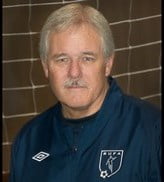What are the “traits of a model youth coach”? The topic is broad so I will confine my thoughts to a few specific points. There are many types and levels of youth coaches, from the parents pressed into service (press gangs – see British naval history) to the top end, ex-professional players. The other major factor is the level of play, whether at the highly competitive levels.
The “model” youth coach will mean different things, especially to parents. We could have model coaches working in a caustic and antagonistic framework who will always be criticized despite perhaps doing a good job. Then we have bad coaches working in a good framework, who may be doing a terrible job.
No matter what different programs are adapting philosophy, some commonalities must exist, in my opinion, of course. Success may be defined in several ways; wins/losses, improved team and, or individual technical improvements, or what I like to call the “happiness” quotient. A lot depends on what the different expectations may be.
In my experience, you will always be less than the model in some people’s lives. I have the list that I used as a guide. Hopefully, it will help others become their best version of the “model coach.”
- Understand your limitations, don’t try to go beyond your capabilities.
- If practices or games are not fUN, you are going down the wrong path.
- High, constant activity is paramount, which means less “coaching”!
- Avoid rote drills at all costs. They turn off the mind and put children to sleep.
- Challenge children at levels just beyond their current level.
- Involve and engage Players in the process. Ask them for feedback and observations.
- Have children make up some of the training and organize them as well.
- Help build ownership include players in the discussion, not be the objects of your wisdom.
- Recognize effort praise outcomes.
- All training must include the ball or balls.
- All training must include decision-making.
- Make the environment safe from harm, overzealous parents, and bullying of any kind.
- Keep the numbers and space in all training (scrimmages, etc.) small. Improves technical ability even if the coach is inexperienced.
- Builds from simple to complex to challenge to keep children moving forward and avoiding boredom.
- Be supportive, but not a cheerleader.
I could write a book on this, by the way. In fact, I am close to finishing said book 🙂

Koach Karl’s Notes:
Thank You – Coach, Howe for sharing your list of what your qualities/traits of the “Model Youth Coach” are, and we are looking forward to reading/promoting your upcoming book.
I hope you enjoyed this article and are looking forward to reading, gleaning advice in future articles on this theme to improve yourself, and sharing ‘it’ with coaches in your soccer community.
I also encourage you to join this discussion because your advice may help improve another youth soccer coach …Priceless..!
Your FUNdamental, Koach Karl (Karl Dewazien)
- Emeritus State DoC of California Youth Soccer Assoc. 1979-2012
- Author – FUNdamental SOCCER Books Series
- Producer – ‘FUNdamental SOCCER -Practice’ DVD.
- Clinician at: www.fundamentalsoccer.com





